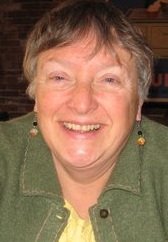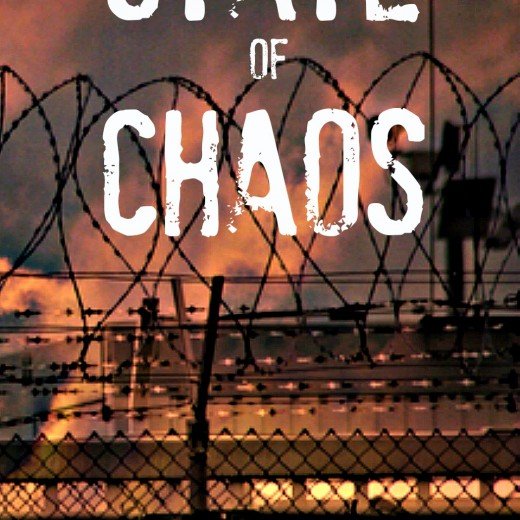Backstory: Not a Dirty Word by Kay Keppler
 Let’s welcome back monthly columnist, editor, and novelist, Kay Keppler, as she shares with us “Backstory: Not a Dirty Word.” Enjoy!
Let’s welcome back monthly columnist, editor, and novelist, Kay Keppler, as she shares with us “Backstory: Not a Dirty Word.” Enjoy!
***
We’ve all heard the first commandment for writers: never open your book with backstory. And the second commandment? No infodumps. And the third? Sprinkle that backstory throughout your book.
Backstory. It’s like a dirty word.
The Problem with Backstory
Backstory refers to events that happen before your story begins. And that’s why we want to use it judiciously—because if it’s not part of the current action, it’s not part of the story, and it just slows readers down. Sittin’ and thinkin’ (“I remember back when I was five…”) leaves your reader wondering where the action went, and infodumps are boring.
That doesn’t mean that backstory can’t be used effectively, even in your openings. Used sparingly, it can work as a bonding agent, connecting readers emotionally to a character who’s facing a change in circumstance.
In addition, the things that happened to your characters way back when can resonate with the now of your action.
Showing the Present through the Past
Consider the film Casablanca. In an early scene, the Nazi major Strasser asks Rick if he can imagine the Germans in “his beloved Paris.”
“It’s not particularly my beloved Paris,” Rick says. Why not? What happened in Paris? We don’t know, because it’s not part of the now, it’s not part of what happens in Casablanca. But it’s a quick glimpse of backstory that hints why Rick is a loner. The mystery deepens when Rick blows up because Sam, the pianist, plays As Time Goes By.
Later, Captain Renault and Rick disagree about whether Victor Laszlo will escape Casablanca. Here’s the dialogue:
Rick: Whatever gave you the impression that I might be interested in helping Laszlo escape?
Renault: Because, my dear Ricky, I suspect that under that cynical shell you’re at heart a sentimentalist. Oh, laugh if you will, but…[i]n 1935 you ran guns to Ethiopia. In 1936, you fought in Spain on the Loyalist side.
Rick: And got well paid for it on both occasions.
Renault: The winning side would have paid you much better.
This indication that Rick once fought for causes he believed in explains why he allows the orchestra to play La Marseillaise over the German officers singing a Nazi anthem. And it shows that Renault sees through Rick’s façade.
Backstory as Character Development
Using backstory in the way that Casablanca’s screenwriters wrote Rick lets readers or viewers understand and assess his character, just as Captain Renault did in the film. Further, that deft handling helps to eliminate awkward explanatory dialogue. (“As you know, Dave, because you’re my brother, when dad beat us and set fire to the house, I emerged unscathed, but you were burned beyond recognition. That scarred you internally and externally.”)
Backstory like that never works. But you might want to try using relevant and brief backstory, interspersed with action, in your narration.
How brief? In his workshops, James Scott Bell suggests that students try three sentences of backstory in the first five pages, spread out or used all at once, and then three paragraphs in the next five pages, spread out or all at once. It’s a guideline you might want to try.
But Sometimes…
Of course, for every rule, there’s an exception. To Kill A Mockingbird and many other terrific novels begin with a big chunk of backstory. Harper Lee opens her brilliant book with backstory told from a compelling first person point of view—that of Scout, her eight-year-old protagonist.
But for most of us and the stories we tell, starting with a small dose of backstory rather than a large bucketful is a smarter way to begin. Leading with action and using backstory as a bonding agent is a structure that grabs readers and doesn’t let go.
And that’s what we all—writers and readers alike—want from our books.
***
ABOUT THE AUTHOR
Kay Keppler is an author Zero Gravity Outcasts, Betting on Hope, Gargoyle: Three Enchanting Romance Novellas, and editor of fiction and nonfiction –Angel’s Kiss and Outsource It!
is an author Zero Gravity Outcasts, Betting on Hope, Gargoyle: Three Enchanting Romance Novellas, and editor of fiction and nonfiction –Angel’s Kiss and Outsource It!
She lives in northern California. Contact her here at Writer’s Fun Zone in the comments below, or at kaykeppler@yahoo.com to ask questions, suggest topics, or if you prefer, complain.






